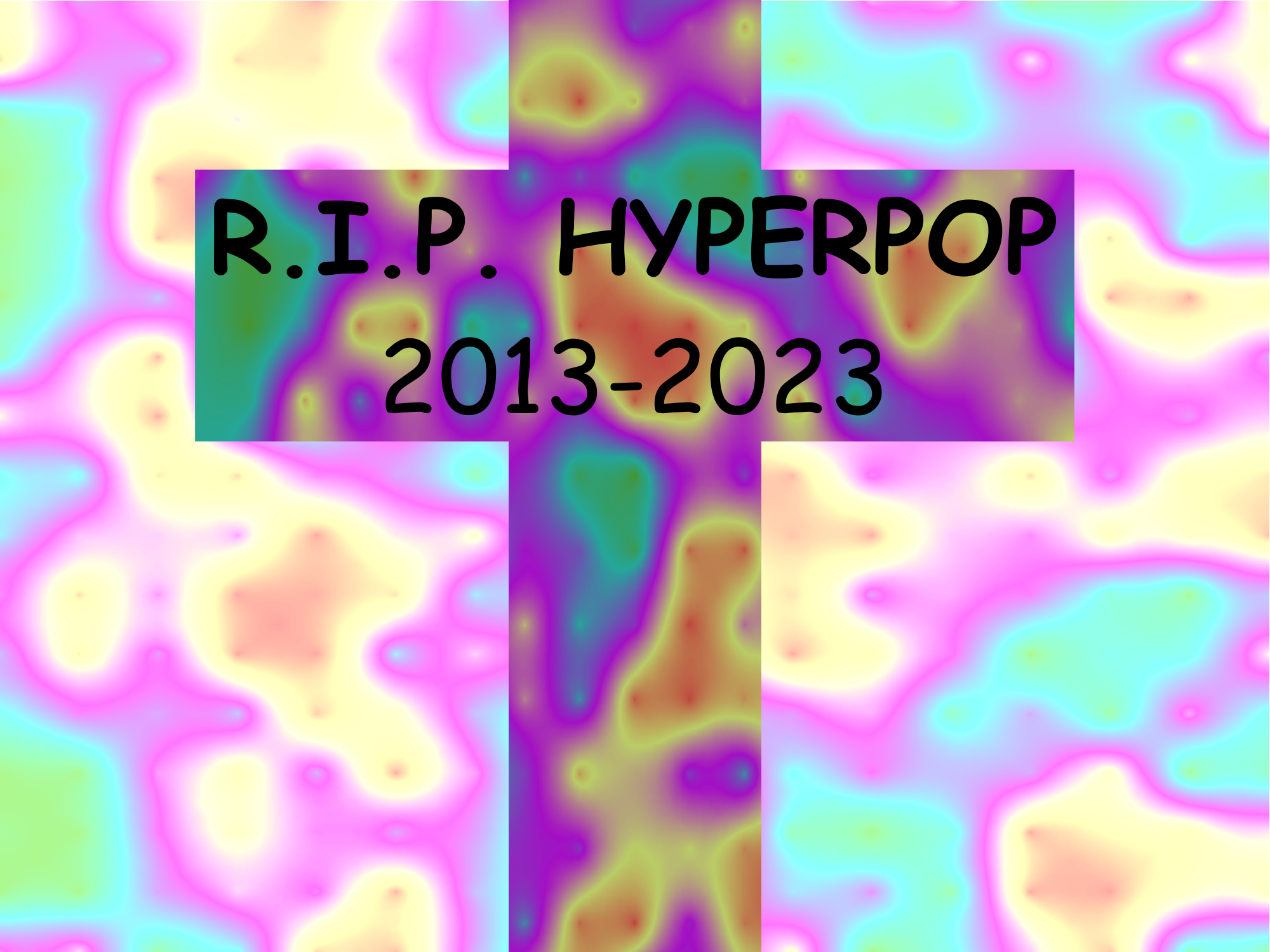Back in June, UK-based record label PC Music – which has long been the unofficial figurehead of the equally unofficial hyperpop movement – announced they would stop releasing new music at the end of the year, after that focusing more on “archival projects and special reissues”. Is hyperpop officially dead?
“Hyperpop was already dead. It has been dead since Spotify put the label ‘Hyperpop’ on it back in 2019!” is what some elitist douchebag reminiscing about the good old days would say. But as someone who only got into hyperpop in 2020, hyperpop was certainly not dead.
Okay, let’s define hyperpop one last time. Hyperpop is a style of experimental, electronic pop music drawing from many different influences like EDM, hip-hop, rock and nightcore. The problem with that definition though, is that it doesn’t define much. That is something hyperpop has always had, ever since the genre/movement became bigger than the retroactively-named-hyperpop releases coming from PC Music. Is this piece of music hyperpop? Is it bubblegum bass? Is it glitchcore?
It has always been easier to define the ‘hyperpop’-community by its artists than to define the ‘hyperpop’-genre by its sonic elements. Youtube-outlet Mic the Snare once tried to name the most important and common aspects of hyperpop songs and came up with (1) overblown and distorted bass, and (2) high-pitched vocals. And sure, I would say that that definition describes the work of artists like A. G. Cook (PC Music’s founder) and 100 Gecs, but does it encompass artists like blackwinterwells, 8485, underscores or Jane Remover? Hell, does it even encompass a lot of songs from Charli XCX (the ‘Queen of hyperpop’)?
I feel the term hyperpop has always been more important as a community label than as a musical style. Even to someone who didn’t actively participate in that part of internet culture – I’ve never been on Twitter, and I hate the user interface of Soundcloud – the Spotify playlist which compiled and curated the fruits of that culture still felt more like a community than a genre. It being the weird, experimental corner of music that it was, it felt like a safe space. Hyperpop celebrated queerness and otherness in a way that wasn’t possible before.
Hyperpop was mostly a way to escape the tropes of the mainstream. Naturally, the experimental and forward-thinking nature of the early music coming out of PC Music attracted a lot of people wanting to experiment with musical conventions and boundaries. As the movement grew, and with a new wave of artists in 2019-2020, a community of people making similar sounding music started to take shape. By 2021, the stereotypical ‘hyperpop-beat’ was an uptempo trap beat, a heavy bass, and upfront, aggressive, somewhat distorted vocals. That’s not to say there wasn’t any other hyperpop, far from it, but the hyperpop ‘sound’ was slowly being commodified.
And if you do the experimental thing often enough, it’s no longer experimental. Most artists are moving on, trying to find something new, another outlet for experimentation. And different artists are going in different directions with that. Where the hyperpop community was once a place where non-conformance converged, it’s now the place from which that same non-conformance jumps off and disperses again.
Hyperpop is dead. We killed it by doing hyperpop.
But hyperpop was just the name of the clubhouse in which the weird kids came together. Now we’re all moving to different cities. Maybe the real hyperpop was the friends we made along the way.
To completely burn this analogy into the ground, the graffiti we sprayed across the city is still up though. If there is one sonic element that does characterise hyperpop, it’s not giving a fuck about production ‘quality’ and completely embracing the DIY aesthetic. And I really believe it when I say that that musical philosophy is slowly seeping into mainstream pop. Whether it’s soft hints in production and vocal delivery in ‘STAY’ (The Kid LAROI), or the movement (and popularity) towards more vibe-based music (as opposed to more lyric-based music) with artists like Kanii.
Sonically, hyperpop itself has been burned up, at least without expanding the scope of the term even more. I notice it in my own music making too: I’m not as excited for it as much anymore, it’s no longer the sound and reference I go to when writing music. I still like the songs that have come out of the hyperpop movement the past couple of years though. They’re good songs.
I’m not hoping for a revival of hyperpop. I am hoping for a revival of the idea behind hyperpop, at some point. A musical space and community for musical weirdness, genre-nonconformance, a direct reaction to the mainstream, without losing the catchyness and good-sounding music. And above all, unless mainstream pop suddenly stops being a reflection of societal norms (it won’t), and unless societal norms stop being so heteronormative (they won’t), we need a new musical community that is capable of celebrating its queerness so openly and uncompromising through its music.
We’ll see what the future holds. For now, I’ll be enjoying a multitude of different genre-bending and rule-bending sounds from the artists that used to make hyperpop.

